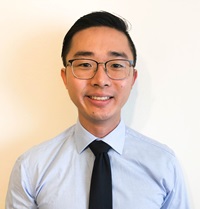2024 | Volume 25 | Issue 5

Dr Mark Ly
Dr Mark Ly, recipient of the 2023 Sir Roy McCaughey Surgical Research Scholarship from the Royal Australasian College of Surgeons (RACS), is grateful for the support. The scholarship, he says, has been crucial in advancing his goal of becoming a surgeon scientist.
His research focused on long-term ex-vivo normothermic machine perfusion, which has shown promise in rescuing livers previously deemed unusable for transplantation.
“The scholarship allowed me to focus on my research. Lab-based research is challenging because it requires constant hands-on time,” he says.
Explaining his nearly completed research project, Dr Ly says, “Long-term ex-vivo normothermic machine perfusion could be the next big advance in liver transplantation. It involves supporting a liver outside the body for more than 24 hours, with potential extensions to a few days or even weeks.”
His work demonstrated that this technique could support human livers for up to two weeks and allows regeneration of severely injured grafts.
He describes it as a “major breakthrough” in transplantation and organ regeneration medicine. “Using long-term ex-vivo normothermic machine perfusion, we were the first to demonstrate that severely injured grafts could regenerate, which could increase the number of available organs for transplantation.”
Given that using human livers is costly and impractical for ongoing research, Dr Ly’s focus has shifted to developing a rat or small animal model.
“The longest perfusion performed on a rat model has been 24 hours, but long-term perfusion beyond that duration remains challenging due to technical and metabolic issues. In comparison, typically, rat perfusions are limited to two to three hours,” he says.
Dr Ly has developed a protocol extending liver support from 24 hours to 72 hours, tripling the previous time frame. The livers maintain essential functions, including bile production, glucose generation, key metabolic functions, and energy production.
“This breakthrough is particularly exciting because it is the first demonstration that rat livers could survive outside the body for 72 hours, opening new opportunities for future research in organ regeneration.”
Dr Ly believes this model lays the groundwork for exploring drugs and interventions aimed at growing or regenerating organs.
“We are excited to disseminate our results as this research is our foot in the door to a promising field with significant potential. It has taken a year to develop.”
Dr Ly attended the University of Newcastle, initially aiming to become a psychiatrist or GP. However, during a surgical rotation where he “scrubbed into an exploratory lobectomy,” he realised that surgery was his true calling.
This experience led him to take a year off to research liver transplantation, which further fuelled his interest. He then returned to medical school and completed his internship and residency at Royal Prince Alfred Hospital in Sydney.
Now a Trainee surgeon on the RACS SET program, Dr Ly says the RACS scholarship has been crucial in supporting his aspiration to become a surgeon scientist.
“Surgery is an art, but at its core is the science that underpins what we do and how we apply it. I’m grateful to the College for the opportunity to pursue my academic interests. It has significantly contributed to my career goal of becoming a surgeon scientist,” he says.
True to his ambition, Dr Ly spends time on hands-on projects, such as building and tinkering, while also devoting much of his time to studying and reading academic articles.
Find out about the Sir Roy McCaughey Surgical Research Scholarship.